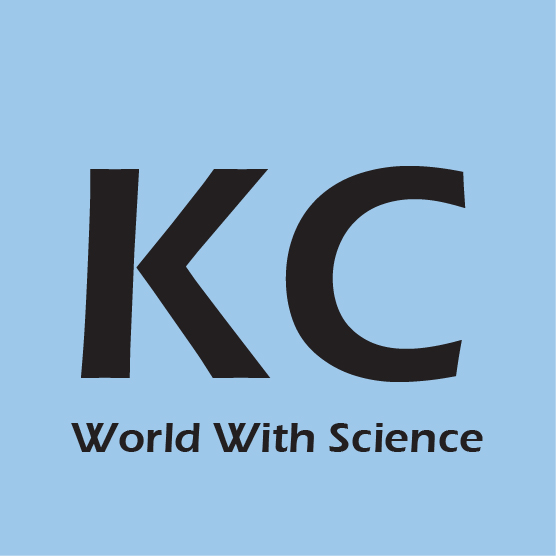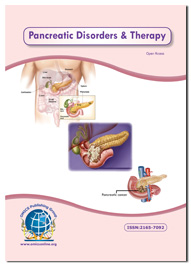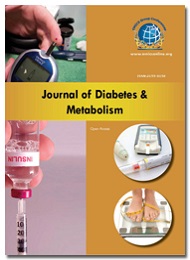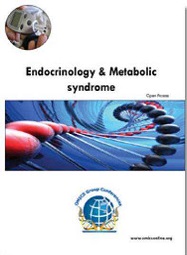Theme: Innovations in Research & the Treatment of Hepatobiliary & Pancreatic Diseases
Pancreas 2018
Pancreas 2018 Scientific Committee is honored to invite you all at the "3rd International Conference on Hepatobiliary & Pancreatic Disorders to be held in Philadelphia, Pennsylvania, USA during September 17-18, 2018. The conference proceedings will include seminars, symposiums and workshops on the latest treatment innovations of various pancreatic diseases, speeches delivered by eminent surgeons, gastroenterologists, endocrinologists and many enthusiastic young researchers.
Conference Series LLC Ltd organizes 3000+ International Conferences Every Year across USA, Europe & Asia with support from 1000 more scientific Societies and publishes 700+ Open Access Journals which contains over 50000 eminent personalities, reputed scientists as editorial board members.
Pancreas is the most important of digestive organs that produces insulin and other digestive enzymes and helps in maintaining the body’s metabolism. The malfunction of the pancreas can lead to various diseases such as jaundice, pancreatitis, diabetes etc. Advanced stages of some of these diseases may lead to pancreatic cancer. Other diseases that affect the pancreas include the hereditary cystic fibrosis where the pancreatic juices are blocked by thick mucus and thereby leading to sever damage of the pancreas.
Researchers have been chipping away at investigating each part of diagnosing pancreatic issue, both fundamental and also progressed as right on time as would be prudent. Being set profound into the belly, recognition and treatment of pancreatic issue have represented a test to the suppliers everywhere throughout the world. This might be one reason, the quantity of individuals being analyzed and the ones biting the dust because of pancreatic malignancy has not enhanced to an incredible surviving. Despite the fact that the numbers have been steady for a few years now, it should be enhanced at the soonest. The most recent development in this field of therapeutic research is simulated pancreas whose clinical research demonstrates promising results. These and more will be talked about alongside our regarded board of arranging advisory group with the keynote speakers and different experts on the topic Research situated developments in pancreatic issue treatment and analytic systems.
Conference Opportunities
- For Researchers and Faculty Members:
- Speaker Presentation
- Poster Display
- Symposium hosting (4-5 member team)
- Workshops
For Universities, Associations & Societies:
- Association Partnering
- Collaboration proposals
- Academic Partnering
- Group Participation
For Students and Research Scholars:
- Poster Competition (Winner will get Best Poster Award)
- Young Researcher Forum (YRF Award to the best presenter)
- Student Attendee
- Group registrations
For Business Deleagtes:
- Speaker Presentations
- Symposium hosting
- Book Launch event
- Networking opportunities
- Audience participation
For Product Manufacturers:
- Exhibitor and Vendor booths
- Sponsorships opportunities
- Product launch
- Workshop organizing
- Scientific Partnering
- Marketing and Networking with clients
Pancreas is one of the digestive organs of the gastrointestinal system. It has two essential functions - one endocrine and the other exocrine. It has been called two glands in one. Our pancreas is responsible for the digestion of the carbohydrates and fats in the body. It works in combination with the other digestive organs liver and gall bladder in order to produce endocrine hormones and exocrine digestive juices. We will be discussing in detail the anatomy, physiology, pathology and treatment of pancreatic diseases ranging from pancreatitis to pancreatic cancer in this conference. Speakers attending our conference are experts in the field and have been involved in research of novel techniques in the treatment of pancreatic ailments.
Track 1: Pancreas/ Pancreatology
Pancreas is one of the master chemists of the body that produce hormones exocrine and endocrine to assist in the digestion of food. It consists of different types of pancreatic cells. The exocrine cells include acinar cells and the endocrine cells are present in clusters of cells called the islets of Langerhans. The Islets of Langerhans function ith the help of pancreatic alpha, beta, delta and gamma cells. The gall bladder is small sac-shaped organ beneath the liver, in which bile is stored after secretion by the liver and before release into the intestine. Genetic screening studies have helped identify gene mutations that lead to pancreatic diseases and in identifying the changes in the pancreatic cells affected by diseases.
Track 2: Hepato-biliary diseases
Hepato-biliary diseases include liver diseases and biliary diseases. Their study is known as hepatology.
Track 3: Pancreatitis
Pancreatic diseases include acute and chronic pancreatitis characterized by severe inflammation of the pancreas. Pancreatitis may also be classified as hereditary pancreatitis and necrotizing pancreatitis. Other disorders of the pancreas include endocrine and exocrine syndromes, Zollinger-Ellison syndrome. Pancreatic divisum is a congenital disorder where the pancreas is not joint but is present as two or three different parts.
Track 4: Liver diseases
Liver disease (also called hepatic disease) is a type of damage to or disease of the liver.
Track 5: IPMN pancreas
Cystic Fibrosis of the pancreas is a condition which develops due to insufficient generation of sodium bicarbonate in the body. This leads to increase in the concentration of pancreatic enzymes due to dehydration. This may block the pancreatic ducts not allowing the continuous production of pancreatic enzymes to pass into the small intestine. Eventually this leads to fibrosis of the pancreas.
Tack 6: Pancreatic Diseases and Disorders
Pancreas is an organ, which plays a major role in digestion and hormone production. Disorders of pancreas include acute pancreatitis, hereditary pancreatitis and pancreatic cancer. The journal stocks up information about pancreatic disorders, methods of detection, different therapies and advanced treatments to overcome pancreatic disorders.
Track 7: Pancreatic Disorders & Treatment
The pancreas is a gland behind your stomach and in front of your spine. It produces juices that help break down food and hormones that help control blood sugar levels. Problems with the pancreas can lead to many health problems. These include:
- Pancreatitis, or inflammation of the pancreas: This happens when digestive enzymes start digesting the pancreas itself
- Pancreatic cancer
- Cystic fibrosis, a genetic disorder in which thick, sticky mucus can also block tubes in your pancreas
The pancreas also plays a role in diabetes. In type 1 diabetes, the beta cells of the pancreas no longer make insulin because the body's immune system has attacked them. In type 2 diabetes, the pancreas loses the ability to secrete enough insulin in response to meals.
Track 8: Pancreatic Tumors and Cancers
Surgery is often part of the treatment for pancreatic cancer if it can be done. Depending on the type and stage of your cancer, surgery might be used to remove the cancer and part or your entire pancreas. Ablation or embolization is another way of destroying the tumors without surgery. Anti cancer drugs are either introduced by injecting into the veins or by oral administration. Chemotherapy and Radiation therapy are sometimes used simultaneously. Whipple procedures are surgical removal of cancerous pancreatic parts. This also includes pancreaticoduodenectomy and pylorous preserving whipple.
Track 9: Pancreatic Enzymes and Hormones
The exocrine cells include acinar cells and the endocrine cells are present in clusters of cells called the islets of Langerhans. The Islets of Langerhans function in the production of hormones insulin and glucagon, somatostatin and pancreatic enzymes with the help of pancreatic alpha, beta, delta and gamma cells. Pancreatic insufficiency is the inability to properly digest food due to a lack of digestive enzymes made by the pancreas. Diabetes leads to many differences in the glucose metabolism rates between those afflicted by the disease and those not. The other pancreatic enzymes trypsin, pancreatic lipase and amylase also effect the digestion and proper absorption of nutrients by the small intestine.
Track 10: Pancreatic Diagnosis
Imaging tests used to diagnose pancreatic cancer include ultrasound, computerized tomography (CT) scan and magnetic resonance imaging (MRI). The CT scan uses x-rays to produce detailed cross-sectional images of your body. CT scans are often used to diagnose pancreatic cancer because they can show the pancreas fairly clearly.MRI scans use radio waves and strong magnets instead of x-rays. The energy from the radio waves is absorbed by the body and then released in a pattern formed by the type of body tissue and by certain diseases.
Track 11: Pancreatitis Prognosis
Pancreatic Cancer and the various diseases associated with this organ have been in the top priority of most researchers in the field of research. In the near past, the number of people dying of pancreatic cancer and its various diseases had increased to an extent that currently, it has become the fourth most common cause of Cancer Death in the United States. Researchers have been focussed on finding advanced treatment techniques for this cancer type. Including high alcoholism, there are number of causes that lead to malfunction or disrupt the normal metabolism of this organ.
Track 12: Pancreatic Surgery and Transplantation
Replacement of diseased pancreas with a healthy one is known as pancreatic transplantation. Different transplant methods include Pancreas Alone Transplant, Liver-Pancreas Transplant, Pancreas after Kidney Transplant and Simultaneous Kidney Pancreas Transplant. Islet Cell Transplantation involves only the transplantation of Islet cells. Care is taken that the grafts are accepted with the help of immunosuppressant and new anaesthesia techniques.
Track 13: Advanced Pancreatitis Treatment
Positron emission tomography (PET) scan is done to obtain image the area affected by cancer through injecting radioactive sugars. Magnetic Resonance Cholangiopancreatography (MRCP) is used to observe the pancreas. This test is not used for biopsies. Endoscopic Retrograde Cholangiopancreatography (ERCP) is used to check for pancreatic cancer and any blocks by injecting a dye through endoscopy. This test can also be used for biopsies. Endoscopic ultrasound is done with a small ultrasound probe attached to the endocope. Biopsy is most commonly done by laparoscopy. Trans abdominal ultrasound examination is used to detect cancers and stones in the gall bladder. Case reports of such diagnosis and clinical trials will be discussed in this session.
Track 14: Stellate and Stem Cells
Nodal-expressing pancreatic stellate cells are an important component of the tumour stroma for creating a paracrine niche for pancreatic cancer stem cells. Secretion of the embryonic morphogens like nodal/activin by pancreatic stellate cells promote in vitro sphere formation and invasiveness of pancreatic cancer stem cells in an Alk4-dependent manner.
Track 15: Entrepreneurs Investment Meet: Pancreas 2016
Pancreas 2016 enables a distinctive platform for converting potential ideas into great business. The present conference will bring together a broad participation from Entrepreneurs, Proposers, Investors, International financial organizations, business associations, academia and professionals in the field of pancreatic research and treatment. This investment meet facilitates the most enhanced and practical business for engaging people in to constructive discussions, evaluation and execution of promising business.
Distributer's "Pancreatic Cancer - Market Insights, Epidemiology and Market Size Forecast-2020" Reports gives a diagram of the malady and worldwide market size of the Pancreatic Cancer for the United States, EU5 (France, Germany, Italy, Spain, UK) and Japan. It likewise incorporates worldwide chronicled and determined epidemiological information for the analyzed occurrence instances of Pancreatic Cancer from 2010-2020.Pancreatic disease emerges when cells in the pancreas, a glandular organ behind the stomach, start to increase wild and shape a mass. The most widely recognized, pancreatic adenocarcinoma, represents around 85% of cases. Those cases not treatable with surgery have a normal five-year survival rate of 16%.Globally pancreatic tumor is the eleventh most regular growth in ladies and the twelfth most basic in men. Endeavors are in progress to grow new medications. Some of these include focused on treatments against the growth cells' atomic components. Others plan to focus on the very safe malignancy undifferentiated organisms. A further approach includes the utilization of immunotherapy, for example, oncolytic infections.
The Pancreatic and Interventional Endoscopy Services at Cedars-Sinai spends significant time in diagnosing and treating the full range of infections of the pancreas and bile conduits. In the most recent couple of years, incredible steps have been made in indicative and remedial devices. Today, they are more precise and less intrusive than customary systems. The following is a brief depiction of some of these therapeutic achievements.
Scope
It is estimated that by 2020, in USA and 2030 in Europe, pancreatic cancer and related diseases are going to become the second most leading cause of cancer death. This rate is calculated as a total of 10% of the cancer death rates. There are number of pharmaceutical companies trying to make drugs for the treatment of pancreatic diseases.
The global market value of this organ’s syndromes have increased from 850 Million back in the beginning of this decade to current market value is around 1.2 Billion USD.
The worldwide constant pancreatitis torment market can be fragmented in view of treatment sort, and topography. Treatments used to treat ceaseless pancreatitis torment incorporate medicinal treatment, endoscopic treatment and surgery. Therapeutic treatment is the main line of treatment in constant agony administration and might be further delegated nonspecific strong treatment, pancreatic proteins, octreotide, and cell reinforcement treatment. Pain relieving medications are the most ordinarily utilized technique to regard the simultaneous manifestations as a strong treatment. Now and again, antidepressants and calming medications are likewise utilized as an attending treatment. The utilization of oral pancreatic chemicals has been variable. These catalysts supplant the ordinarily delivered pancreatic proteins; in any case, these chemicals are not known to be successful in all individuals. Octreotide are cholecystokinin-receptor foes that restrain pancreatic discharge and in this manner is known to be powerful in diminishing the endless agony.
The other Major Companies working on the developing Artificial Vital Organs are
Abbott Diabetes Care
AbioMed
Baxter International
Fresenius Medical Care
Thoratec Corporation
Otto Bock Healthcare
SynCardia Systems, Inc.
WorldHeart Corporation
The other competitive pancreas product developers are
AB Science
AbGenomics International
Aduro Biotech
Aphios
Celsion
Gilead Sciences
Halozyme Therapeutics
Merrimack Pharmaceuticals
Momenta Pharmaceuticals
Novartis
OncoMed Pharmaceuticals
OncozymePharma
Ostuka Holdings
Rexahn Pharmaceuticas
Zeria Pharmaceutica
The top pharmaceutical companies in the pancreas market are
Eli Lilly
Genentech
OSI Pharmaceuticals
Roche
Celgene
Pfizer
Merck's
Sanofi
Lantus
National Funding Organizations (USA)
National Cancer Institute
National Institute of Diabetes and Digestive and Kidney Diseases
NIH Loan Repayment Programs
NIH Director’s Pioneer Award
NIH Director’s Early Independence Award (EIA)
Congressionally Directed Medical Research Programs (CDRMP), Department of Defense (DOD)
National Institute of Nursing Research
U.S. Food and Drug Administration Orphan Products Grant Program
Private Foundations Funding Cancer Research (USA)
Pancreatic Cancer Action Network
American Cancer Society
American Association for Cancer Research
American Gastroenterological Association
Burroughs Wellcome Fund
Caring for Carcinoid Foundation
The Damon Runyon Cancer Research Foundation
Doris Duke Charitable Foundation
Hirshberg Foundation for Pancreatic Cancer Research
The Lustgarten Foundation
Michael Rolfe Pancreatic Cancer Foundation
The National Pancreas Foundation
National Foundation for Cancer Research
The Robert Wood Johnson Foundation
Sidney Kimmel Foundation for Cancer Research
Stand Up To Cancer
Conference Highlights
- Pancreas
- Pancreatitis
- Intraductal Papillary Mucinous Neoplasm (IPMN) pancreas
- Pancreatic Enzymes and Hormones
- Pancreatic Cancer Treatment
- Pancreatic Diseases and Disorders
- Pancreatic Tumors and Cancers
- Pancreatitis Prognosis
- Pancreatic Diagnosis
- Hepatobiliary and Pancreatic Disorders
- Pancreatic Surgery and Transplantation
- Advanced Pancreatitis Treatment
- Pancreatic Stellate & Stem Cells
- Treatment Therapies in Pancreatic Carcinoma
- Hepato-biliary diseases
- Liver diseases
- Diabetes & Metabolism
To share your views and research, please click here to register for the Conference.
To Collaborate Scientific Professionals around the World
| Conference Date | September 17-18, 2018 | ||
| Sponsors & Exhibitors |
|
||
| Speaker Opportunity Closed | |||
| Poster Opportunity Closed | Click Here to View | ||
Useful Links
Special Issues
All accepted abstracts will be published in respective Our International Journals.
Abstracts will be provided with Digital Object Identifier by









